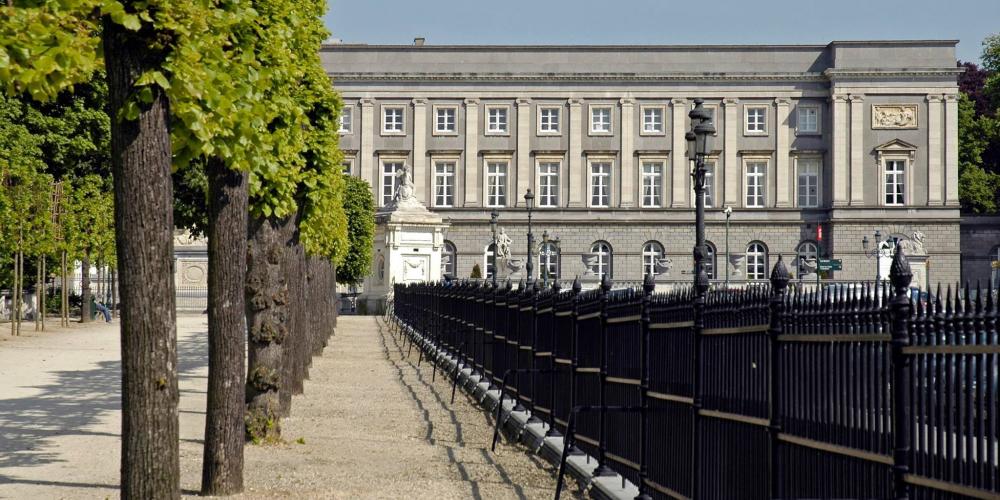
From 2026 onwards, the Royal Flemish Academy of Belgium for Science and the Arts (KVAB) will lose its structural government funding. The cut of roughly €750,000 puts the institution under heavy pressure. Since 1772, the KVAB has brought science and the arts together, connected researchers, artists and policymakers, and acted as a sounding board for societal issues. According to the KVAB, this cut threatens its role as an independent institution and reduces Flanders’ visibility in European knowledge networks. In its open letter to the Flemish government, the KVAB speaks of an “existential crisis.”
Open letter KVAB to the Flemish government
As part of its austerity programme, the Flemish government has completely cancelled the subsidy of the Royal Flemish Academy of Belgium for Science and the Arts (Koninklijke Vlaamse Academie van België voor Wetenschappen en Kunsten, KVAB). The minister in charge is the Minister-President, in his capacity as Minister of Science and Innovation.
Given the fact that in terms of savings the termination of this subsidy (ca. 750 000€) is largely symbolic, the measure confronts the KVAB with an existential crisis. The dismantling of this multidisciplinary and independent think tank means an impoverishment of the Flemish knowledge landscape. This damage may not be immediately quantifiable, but it will be felt all the more in the longer term.
The KVAB is one of the oldest Academies in Europe and has its origins in the Imperial Academy founded by Maria Theresa in 1772. At the time of the Enlightenment, Academies were established all over Europe, and later in the United States and worldwide, with the aim of bringing together the country's most eminent scientists and artists in an influential interdisciplinary forum.
Over the years, the KVAB has been able to maintain itself flexibly and adequately under all historical and political constellations and has always enjoyed high esteem and wide recognition. As a major achievement of the Flemish struggle for emancipation, the Flemish Academy was founded in 1938 as an independent organisation under the impetus of advocates such as Frans van Cauwelaert. Its major purpose was to strengthen the voice of Flanders within Belgium.
Since 1996, the Flemish Academy has been under the authority of the Flemish government. It is incomprehensible that the Flemish government is now about to summarily abandon this time-honoured institution - the product of the Flemish struggle for linguistic and cultural emancipation, which the Flemish government is supposed to advance.
The KVAB fulfils an obvious and unique role in the Flemish knowledge and cultural landscape. The Academy is in no way a mere extension of the universities, as it promotes both science and the arts. Its more than three hundred members are all prominent Flemish scientists, thinkers, artists and business leaders, who selflessly dedicate themselves to the service of society. The Academy enriches the public debate with its expertise, organises lecture cycles, awards prestigious prizes, publishes scientifically sound and substantiated reports on socially relevant topics, and supports young talent through the Young Academy, which it founded in 2013.
All countries in Europe – from Finland to Portugal and from Scotland to Ukraine – support their academies and consider them beacons of excellence. Not least in our neighbouring countries - in the Netherlands, France, Germany and Great Britain - the Academies of Science and the Arts are proudly supported by the government. If the KVAB disappears, Flanders will be a negative exception and will therefore also lose access to the dynamic European and international academy networks, which actively contribute to science diplomacy.
This austerity measure also creates a poignant asymmetry in Belgium. The French-speaking sister academy, the "Académie royale des Sciences, des Lettres et des Beaux-Arts de Belgique", can continue to count on subsidies from the government of the French-speaking Community. This is not just a financial inequality, but a slap in the face for the Dutch-speaking knowledge ecosystem.
In the field of scientific research, Flanders is a high-performance region in a federal Belgium and in a rapidly evolving Europe. The KVAB wants to actively contribute to the further development of a resilient Flanders. In a geopolitically turbulent world, in which traditional values such as academic freedom and independence are under great pressure, the KVAB, together with its sister academies at home and abroad, can play an important role as an intellectual and cultural compass.
The KVAB also takes a critical look at itself. It is definitely not standing still, but is intensively engaged in a renewal process and a strengthened collaboration with the Young Academy. It would like to interact with the Flemish government about its strategic multi-year plan and it still hopes to be able to enter into a constructive conversation with the Minister-President.
The undersigned urge the Flemish government to reconsider the proposed decision and to maintain the funding of the KVAB as stipulated by decree.